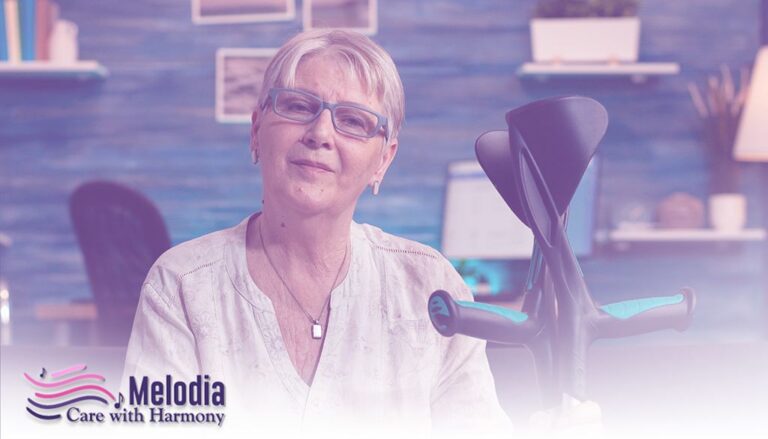Hospice Care For Cancer Patients In Livermore City, California
Hospice care is to give patients who have less than six months to live the best possible quality of life in their final months, weeks, and days. Hospices play a significant role in the management of cancer pain. When a person is dying, hospices adopt a holistic approach that encompasses the mind, body and spirit.
Even with the best of treatments and care, a cancer diagnosis can be debilitating, and you may find that there is no hope of recovery or remission for you. That stage of the sickness may alter the focus of your treatment from curing the disease to making sure that you have a peaceful and pleasant dying day. If you or a member of your family is dealing with cancer, the compassionate and comprehensive care provided by hospice can be of great assistance.
Many patients who are receiving hospice cancer care describe it as a positive experience that enhances their quality of life in their final months of life. If your doctor has recommended you to hospice, you can begin receiving this critical care immediately.
Can The Pain Of A Cancer Patient Be Measured?

The pain cancer patients experience can have a significant impact on their quality of life. As a result, a patient’s ability to sleep may be hindered by pain, making them feel even worse as a result.
Hospice teams are trained to analyses their patients’ pain levels in order to choose the best course of action to provide much-needed relief and allow patients to be more comfortable.
When it comes to communicating their pain, some people are able to do so. If a patient’s pain is measured on a scale of 1 to 10, the hospice care team can get a feel of how much they are suffering.
carers are also taught to look for nonverbal signs of suffering in those they are looking after. Dementia sufferers, for example, may not be able to express their thoughts, but even those who are afraid to admit they are suffering would benefit from this technique. Nonverbal pain scales can be used to measure the level of suffering these persons are experiencing.
Hospice Patients Who Need Pain Medication

Hospice’s multidimensional approach to patient care, and in particular the management of pain, relies heavily on medication.
Patients with mild to severe discomfort are frequently administered acetaminophen or ibuprofen as their first line of defence.
In many cases, these options do not provide adequate pain relief for people with advanced cancer.
As a result, a higher dosage of strong opioids is recommended to many individuals. By attaching to opioid receptors in the brain, they reduce the sensation of discomfort. They can be helpful in alleviating pain from moderate to severe levels. Patients in hospice are frequently provided hydromorphone, morphine, methadone and oxycodone.
On The Question Of Opioids For Cancer Patients

Opioid addiction is a huge concern for many people, but it is not a concern for patients who are nearing the end of their life.
To ensure that the correct amount is given and that side effects are kept to a minimum, it is imperative that patients receiving these medications are closely monitored.
Patients may need to take higher doses of these drugs for a longer period of time before they feel better, and their medical teams may have to experiment with different approaches.
Many options are available for administering the medication, including pills, patches, injectables and IV solutions as well as quick-acting and long-lasting formulations.
A patient’s opioid medications must be stored in a secure location and not be abused by anyone else in the house as part of the hospice pain management regimen.
Other Pain-Relieving Drugs For Patients In Hospice Care

Patient’s may be given adjuvant analgesics, which are drugs that are used in concert with opioids to treat pain in order to achieve the best pain relief possible. When used in concert with opioids, adjuvant analgesics help to alleviate the symptoms of pain more effectively.
Because of their anti-inflammatory effects, steroids, for example, may be recommended to persons who are experiencing discomfort as a result of inflammation. In order to achieve this, they are highly successful in the treatment of bone and nerve pain.
There is still another therapy option for some types of nerve-related pain that has been shown to be effective: anticonvulsants. If you are experiencing discomfort that looks to be exacerbated by muscular spasms or stress, your doctor may prescribe anti-anxiety medication for you.
The use of bisphosphonates may be beneficial for persons with cancer that has spread to their bones because they can minimize the risk of fractures, which in turn can lessen bone injury and discomfort. Extreme pain may require local anesthesia injections, which may be necessary in some cases.
When And Where Will Cancer Patients Receive Care? How Frequently Will They Receive Care?

A member of the hospice team will come to your home once a week to check on you and your family and to offer you and your family physical, spiritual, and emotional care. It is common for hospice cancer care to be offered in the patient’s home, but it can also be provided in other settings, such as an assisted living community or a nursing facility.
What Kind Of Care Can I Expect?

You can see what to expect during your stay in hospice cancer care in the next section.
Collaboration

A team of professionals and volunteers will look after you, including those who have completed thorough training. The team will work closely with your oncologist and other medical specialists, and meetings will be held on a regular basis to keep everyone up to date on your status.
With your family’s help, the hospice staff can help you and your loved ones come up with a care plan that outlines the goals and actions that will be taken.
Pain Control And Relieving Comfort

Hospice care aims to make you as comfortable as possible, one of its key objectives. An expert in pain management will work with you to make sure that the medication you’re taking is helpful even when your pain levels change during your course of treatment. To avoid unwanted side effects, your hospice nurse may be able to adjust or switch your medication.
Medical Equipment

Hospice will assist you in managing the ordering, delivery, and setup of medical equipment and supplies that can help you feel more comfortable while in hospice care. Additionally, they may offer shower chairs, hospital beds, and nebulizers in addition to wheelchairs and geriatric recliners. In addition, a hospice nurse will analyze your needs and ensure that your equipment is delivered on schedule, while care professionals will monitor your supply usage and restock supplies as needed.
Care For An Emergency

Hospices have nurses on call 24 hours a day, seven days a week to assist with crises, giving patients and their families with the certainty that they will receive speedy attention when urgent care is required.
Chaplain

If you desire spiritual guidance and support, a hospice chaplain is available to provide it. Your chaplain will assist you in preparing for, analyzing, and addressing your spiritual needs throughout your stay in hospice cancer care. The chaplain’s services can help you and your loved ones find peace and comfort as you approach the end of your life.
Chaplains can help you explore the deeper questions of life, such as what it means to be alive and how important it is to have a positive impact on the world. In spite of the fact that they don’t know everything, they can help you develop a more spiritually developed frame of mind through their discourse. Chaplains can also help your family deal with spiritual concerns, as well as feelings like guilt, confusion and melancholy among other things.
You will receive spiritual guidance that is in line with your religious values and preferences. You can decide whether or not to use the chaplain’s services at any time throughout your stay.
Professionals In The Field Of Social Services

You and your loved ones can rely on hospice social workers for emotional and psychosocial support. Your health care provider can help you coordinate the details, such as dealing with the Veterans Administration or your insurance company, if needed. Other end-of-life considerations can also be handled by them.
Moreover, they can listen to your concerns and offer advice on how to fix them. Among the issues they can help with include advance directives, family dynamics, grief and financial concerns.
Aides For The Elderly

A home health aide can help you with your personal hygiene and other activities of daily living such as doing the laundry, changing your sheets, and brushing your teeth.
Volunteers For The Hospice Care Program

In addition, you can expect a visit from a hospice volunteer with experience in end-of-life issues, confidentiality, and working with families. They can be a good source of conversation and friendship, as well as support in dealing with other people.
Volunteers may be able to assist with light housework, run errands, stay by your side while your loved ones take a break, cook light meals, and drive you to medical appointments.
Therapists

Other types of therapists can also come to see you. A pet therapy volunteer, for example, can bring a pet to your house so that you can spend time with it, which can help reduce pain, lower blood pressure, and offer joy to your day in general.
Some music therapists will come to your home and play an instrument for you, which is a great way to unwind and unwind your mind and body. Some may even accommodate special demands.
Some hospices have massage therapist volunteers on hand to help with pain relief and relaxation.
Approaches Based On Emotions And Spirits

Holistic hospice care takes into account the patient’s physical, emotional, and spiritual well-being. Thus, pain management can go beyond the use of medications. Emotional distress, such as anxiety, is frequently accompanied by physical discomfort, making it imperative that it be addressed.
Both physical symptoms of pain and the body’s response to physical pain can be exacerbated by worry, making it vital to treat both at the same time.
Patients’ emotional and spiritual needs are met through the use of sedatives such as Ativan or Valium, as well as visits from hospice social workers and priests.
Families are also cautioned by hospice staff to avoid adding to the anguish of a dying loved one by arguing with them or even being in the same room as them.
Make An Appointment With The Melodia Care Hospice Team

Hospice care may be an option for you or a loved one if you or they have been diagnosed with cancer or another terminal illness and given a prognosis of six months or less to live.
Getting in touch with the caring professionals at Melodia Care Hospice can help you and your loved one get the most out of every moment as their illness progresses.
You can reach us at any time by contacting us through our 24/7 online customer support chat or by calling 1-888 635-6347 (MELODI-7) & Melodia Care Hospice.
